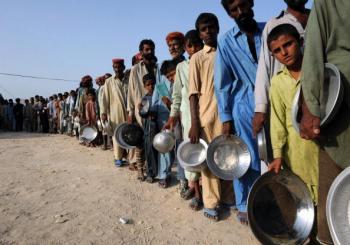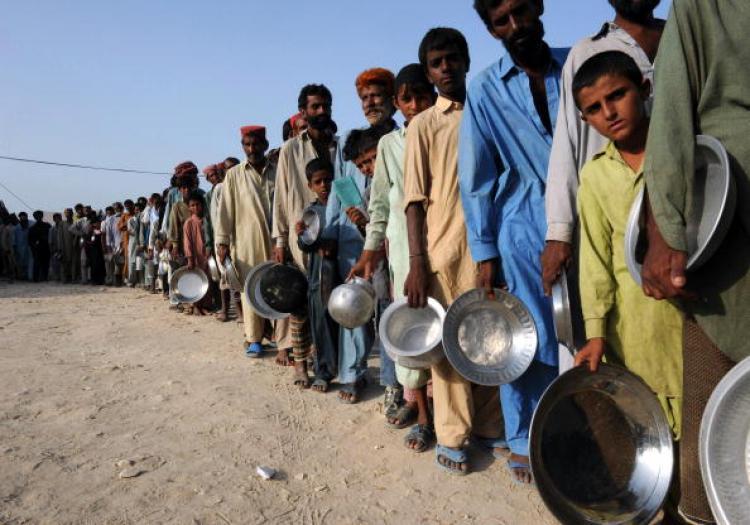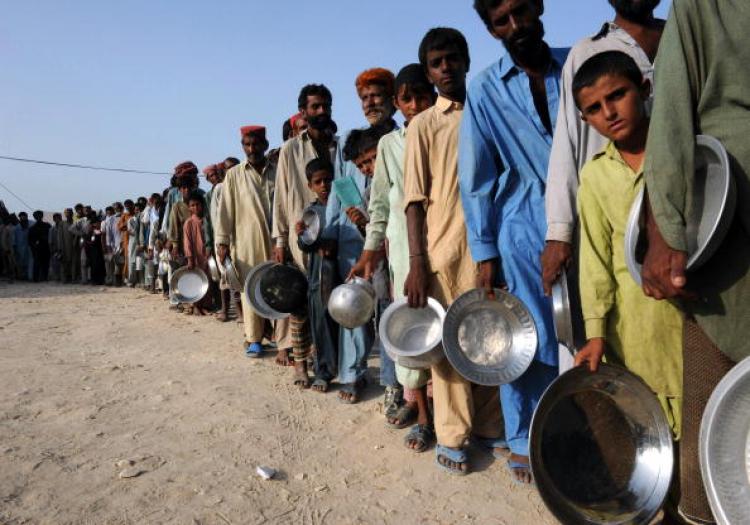The floods caused by Pakistan’s monsoon rains have reached the southern province of Sindh. Hundreds of thousands of people are leaving their waterlogged homes.
“The situation in Sindh is of high concern,” said Maurizio Giuliano, a spokesman for the UN Office for the Coordination of Humanitarian Affairs, according to the UN News Center. “The water now is in Sindh and entire cities have been evacuated.”
Problems faced by the Pakistani people include lack of food and shelter, appropriate medicine, and water and sanitation facilities.
The floods began in late July during the monsoon rains. There are 1,200-1,600 confirmed dead, and about 15.4 affected people, reported the UN News Center. At least 6 million are lacking food, shelter, drinking water, and health care.
The World Food Programme (WFP) believes 40 more helicopters are needed to bring supplies to stranded people.
The European Union said the priorities are to supply “large volumes of plastic sheeting” for shelter, as there are not enough tents; to feed 6 million people, their livestock, and to hopefully plant the winter crop by late September; and to help the people with health problems.
Health issues currently rampant in Pakistan are watery diarrhea, skin diseases, acute respiratory tract infections, malaria, dengue fever, and cholera.
The people also need clean drinking water and hygiene kits, especially in Sindh, according to an EU release.
“The situation in Sindh is of high concern,” said Maurizio Giuliano, a spokesman for the UN Office for the Coordination of Humanitarian Affairs, according to the UN News Center. “The water now is in Sindh and entire cities have been evacuated.”
Problems faced by the Pakistani people include lack of food and shelter, appropriate medicine, and water and sanitation facilities.
The floods began in late July during the monsoon rains. There are 1,200-1,600 confirmed dead, and about 15.4 affected people, reported the UN News Center. At least 6 million are lacking food, shelter, drinking water, and health care.
The World Food Programme (WFP) believes 40 more helicopters are needed to bring supplies to stranded people.
The European Union said the priorities are to supply “large volumes of plastic sheeting” for shelter, as there are not enough tents; to feed 6 million people, their livestock, and to hopefully plant the winter crop by late September; and to help the people with health problems.
Health issues currently rampant in Pakistan are watery diarrhea, skin diseases, acute respiratory tract infections, malaria, dengue fever, and cholera.
The people also need clean drinking water and hygiene kits, especially in Sindh, according to an EU release.






